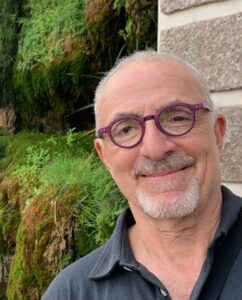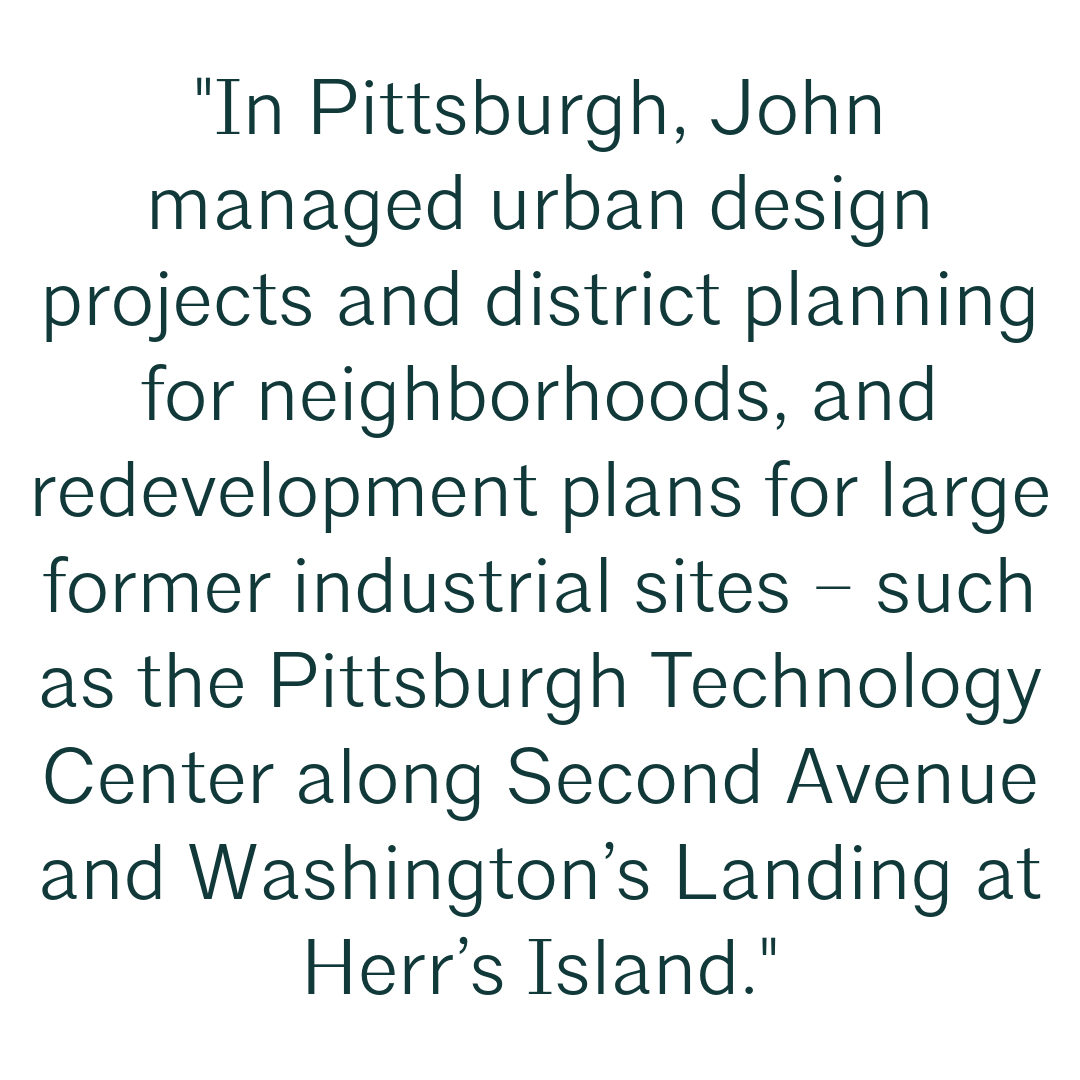Keynote Address: John Rahaim
(3:45 – 4:45 PM)

This year’s Keynote speaker is City Planner and urban designer, John Rahaim. John has thirty years of urban planning leadership in three US cities: Pittsburgh, Seattle and San Francisco. Some members will remember John as Associate Director of Pittsburgh City Planning in the 1990s, as well as being an Urban Designer/Downtown Planner in Pittsburgh in the 1980s.
Trained as an architect, John shifted his focus to planning while in Pittsburgh. In his career, he has reviewed, analyzed and shaped millions of square feet of development toward greater public benefit and outstanding design, with an emphasis on housing policy, equitable development, and sustainable design.
Most recently, John was the Planning Director for San Francisco from 2008 to 2020, a period when the city experienced its most substantial growth in a century, as well as challenges of affordable housing, multi-modal transit, and climate-readiness. During that time, he worked on major initiatives from Regional Bay Area Planning with a focus on sustainability and a Transit Center District Plan with the highest density in the US outside of New York, to a Better Streets Plan and the reuse of a substantial portion of the city’s industrial land base.
 Before that, John was Planning Director for Seattle from 2003-2007, and oversaw, among other efforts, the Central Waterfront Plan, a Sustainability Plan to address climate change at the local level, and the Mayor’s Center City Strategy, a multifaceted effort to create a 24/7 sustainable, environment in the downtown and five surrounding neighborhoods. Prior to that, he was Founding Executive Director, CityDesign and Executive Director, Seattle Design Commission.
Before that, John was Planning Director for Seattle from 2003-2007, and oversaw, among other efforts, the Central Waterfront Plan, a Sustainability Plan to address climate change at the local level, and the Mayor’s Center City Strategy, a multifaceted effort to create a 24/7 sustainable, environment in the downtown and five surrounding neighborhoods. Prior to that, he was Founding Executive Director, CityDesign and Executive Director, Seattle Design Commission.
In Pittsburgh, John oversaw all design and development review for major projects, as well as physical planning, and urban design work for the City. He managed urban design projects and district planning for neighborhoods, and redevelopment plans for large former industrial sites – such as the Pittsburgh Technology Center along Second Avenue and Washington’s Landing at Herr’s Island. Other key projects include Allegheny Riverfront Park in the Cultural District and the Master Plan for Nine Mile Run. John also directed the complete rewrite of the City’s 1958 Zoning Ordinance, the first rewrite of the code at that time in 40 years.
John held adjunct teaching positions at Carnegie Mellon University, the University of Washington, and Harvard University. He is currently an adjunct professor at the University of California at Berkeley, in the Master of Real Estate+Design Program. John received a Bachelor of Science in Architecture from the University of Michigan, and a Master of Architecture, with an emphasis on urban design, from the University of Wisconsin-Milwaukee. He attributes his life-long interest in cities and urban environments to growing up in Detroit.
